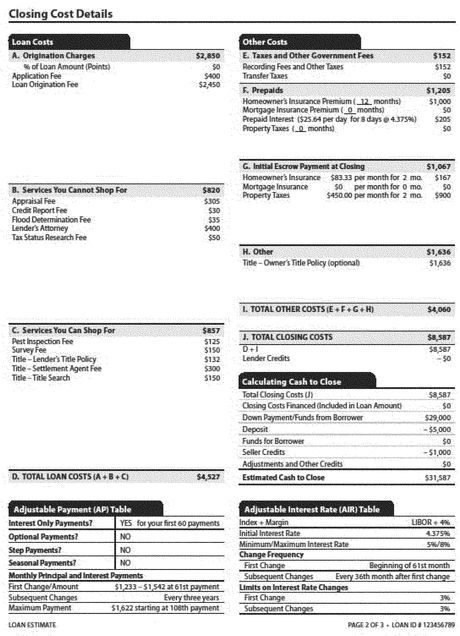What Are RESPA Disclosures
Post on: 2 Июль, 2015 No Comment

RESPA, or the Real Estate Settlement Procedures Act, requires a lender to give a borrower certain disclosures during the course of their loan. Some disclosures will list the costs associated with the closing, other disclosures will outline the lender’s closings costs and escrow account practices. Another disclosure will describe the business relationship between the settlement service providers. These disclosures are called RESPA Disclosures because they are mandated by the Real Estate Settlement Procedures Act. The U.S. Department of Housing and Urban Development (HUD) published new regulations in regard to servicing disclosure documents and those changes took place on January 1, 2010. They add expanded information in order to help a Borrower make an informed choice and one which is best for them in regard to choosing a loan program.
The Good Faith Estimate of Settlement Costs (GFE ) is the first RESPA form a Borrower is likely to see. The lender will be required to give you a GFE of the settlement charges you will likely have to pay at closing. The lender will give you a copy of this disclosure either when you apply for your loan or within the next three business days after application. Prior to January 2010, the costs outlined on the GFE were allowed to be estimates and the final figures could change by the time of closing, but with the new regulation, the figures are allowed to vary only a limited amount (based on a tolerance level of zero up to 10%) from the final figures given on the HUD-1 statement. You can refer to the HUD website, www.hud.org to view a copy of a sample Good Faith Estimate and HUD-1 statement, together with helpful explanations and common questions and answers. The form outlines which charges may change and those which may not.
Your lender will also be required to give you a copy of a Servicing Disclosure Statement, which will tell you if your lender anticipates that someone else will be servicing your loan. What this means is that your lender may not be the agency collecting your monthly mortgage payments. You must be told when you apply for your loan or within three business days, if your lender expects this to happen.
If a lender, real estate broker or other party in your closing refers you to an affiliate for a settlement service, such as when a real estate brokers refers you to an affiliated mortgage broker, the referring party is required to give you an Affiliated Business Arrangement Disclosure. This form will explain that you are not required to use the affiliate and are free to shop for other providers, if you choose to do so.
One day prior to your closing, you are given the right to look over the HUD-1 Settlement Statement. The HUD-1 statement is the final closing statement for your transaction and will itemize the services provided to you and all the fees which were charged or credited to you. If you will not be closing at a settlement meeting, the escrow agent will mail you your HUD-1 statement after closing and you will not have the right of inspect the statement one day before the closing date. Most closings do involve a closing meeting, so generally you will receive a HUD-1 statement prior to the closing day.
You may be required to establish an escrow or impound account with the lender to be sure that your taxes and insurance premiums are paid on time. You may have to pay an initial amount at closing to start the account and an additional amount each month, together with your regular mortgage payment. Your escrow account payments may include a little extra to ensure that the lender has enough money to make the payments when due. Under RESPA regulations, your lender may only collect a maximum of up to two months of escrow payments. At the closing, or within the next 45 days, the person servicing your loan must give you an initial escrow account statement. This form will show all of the payments which are expected to be deposited into the escrow account and all of the disbursements which are expected to be made from the escrow account during the year ahead. You should be sent a disclosure each year which shows the prior year’s activity and any adjustment which is necessary in the escrow payment that you will make making in the year ahead.
Sandy Gadow. This column may not be resold, reprinted, resyndicated or redistributed without the written permission from Escrow Publishing Company.
Related Link
All information is deemed reliable but is not guaranteed and should be independently verified.














